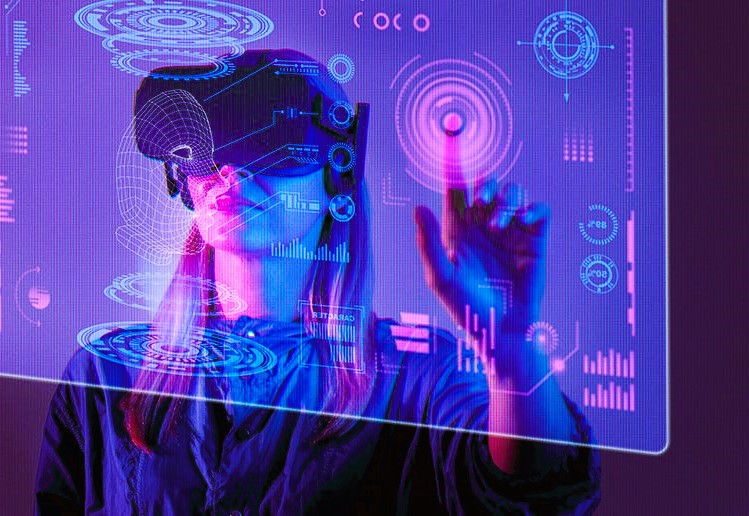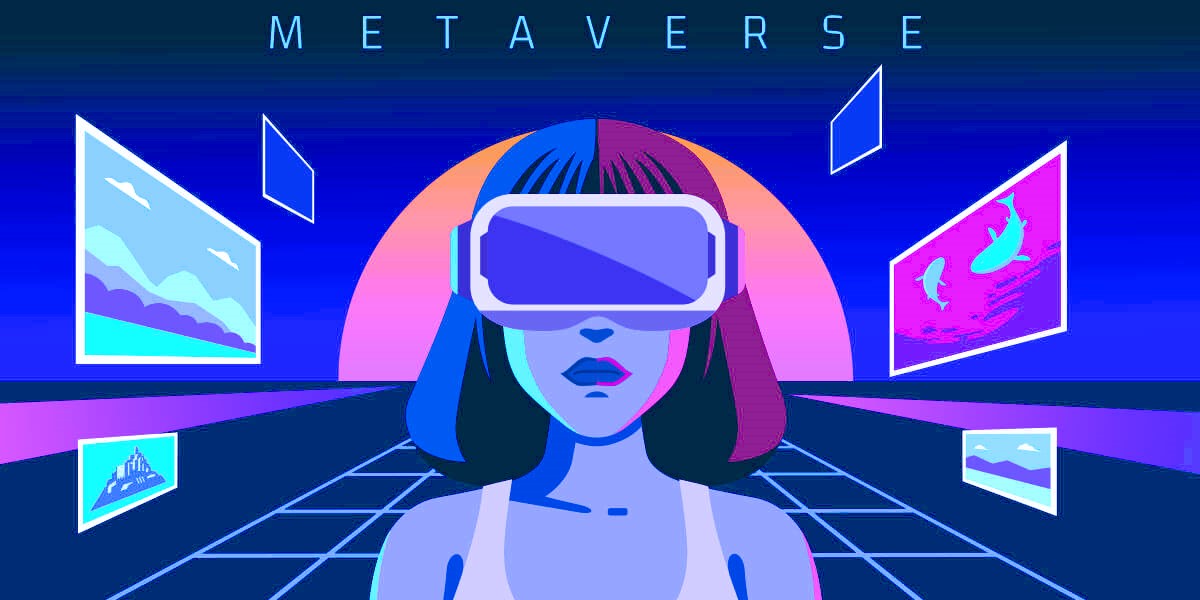In the ever-evolving landscape of technology, the concept of the metaverse has emerged as a revolutionary paradigm, promising to reshape the way we interact with digital realms. As a convergence of virtual and augmented reality, social connectivity, and immersive experiences, the metaverse represents a new frontier that transcends traditional boundaries. In this exploration, we delve into the definition, components, potential applications, and the transformative impact of the metaverse on our digital future.
Defining the Metaverse:
The metaverse is a collective virtual shared space that exists beyond the physical world, where users can interact with a computer-generated environment in real-time. It goes beyond traditional notions of virtual reality, encompassing a seamless blend of augmented reality, social experiences, and persistent digital spaces.
Components of the Metaverse:

1. Virtual and Augmented Reality:
Virtual and augmented reality technologies serve as the foundational elements of the metaverse, providing immersive visual and auditory experiences. Users can navigate and interact with digital environments as if they were physically present.
2. Social Connectivity:
Social interaction is a core component of the metaverse. Users can engage with others in shared digital spaces, fostering collaboration, communication, and a sense of presence that goes beyond traditional online interactions. The future of quantum computing, more details in the article about deep dive.
3. Persistent Digital Spaces:
Unlike transient digital experiences, the metaverse features persistent digital spaces that evolve and grow over time. These spaces can host a variety of activities, from social gatherings and events to commerce and entertainment.
4. User-Generated Content:
Empowering users to contribute to and create content is a key aspect of the metaverse. User-generated content adds diversity and richness to digital environments, allowing individuals to shape their virtual experiences.
Potential Applications of the Metaverse:
1. Social Interaction:
The metaverse offers a platform for social interaction that goes beyond traditional social media. Users can engage in shared activities, attend events, and build meaningful connections in a more immersive and dynamic manner.
2. Commerce and Economy:
Businesses can establish a presence in the metaverse, creating virtual storefronts and engaging with customers in novel ways. The metaverse has the potential to revolutionize digital commerce and redefine economic transactions.
3. Education and Training:
The metaverse provides a versatile environment for education and training. From virtual classrooms to simulated hands-on experiences, it offers new possibilities for immersive learning and skill development.
4. Entertainment and Media:
The entertainment industry stands to be transformed by the metaverse. Virtual concerts, interactive storytelling, and immersive gaming experiences are just a glimpse of the diverse entertainment options it can offer.
Transformative Impact on Digital Interaction:

1. Redefining Presence:
The metaverse redefines the concept of presence in digital interactions. Users can feel a sense of being present in a shared virtual space, transcending the limitations of traditional two-dimensional online experiences.
2. Democratizing Content Creation:
User-generated content in the metaverse democratizes the creation of digital experiences. Individuals, rather than large corporations alone, can contribute to and shape the evolving landscape of the metaverse.
3. Blurring Physical and Digital Realities:
Augmented reality within the metaverse blurs the boundaries between physical and digital realities. Users can seamlessly transition between the two, creating a more integrated and fluid digital experience.
Platforms for Staying Informed:
To stay informed about the latest developments and discussions surrounding the metaverse, platforms like GameSpot provide comprehensive coverage. While these platforms are recognized for their gaming and entertainment content, they often feature in-depth articles and insights into emerging technologies, including the metaverse.
Conclusion: Navigating the Digital Evolution
The metaverse represents a transformative shift in how we perceive and engage with digital spaces. As it continues to evolve, the metaverse holds the potential to redefine social dynamics, economic interactions, and the very nature of our digital existence. Navigating this new frontier requires not only technological innovation but also thoughtful consideration of ethical, privacy, and inclusivity considerations. The metaverse is not just a destination; it is a journey into the uncharted territories of digital interaction, where the boundaries between reality and the virtual world are becoming increasingly fluid. Embracing the metaverse means embracing a digital evolution that transcends the limitations of our current online experiences, ushering in a new era of connectivity, creativity, and shared virtual existence.


